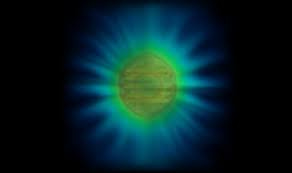💬 What do you mean when you say quantum?
The evolution of language and making space for the scientific and the woo

A quantum refers to the smallest unit of something, as in an electron is the smallest measurable unit of electricity. Other well-known quanta include protons, neutrons, and photons.
Colloquially, quantum also refers to something large or significant, as in a quantum improvement.
Thus, most often, when you hear of someone describing quantum health, they are usually describing a small thing that has a big impact on health.



